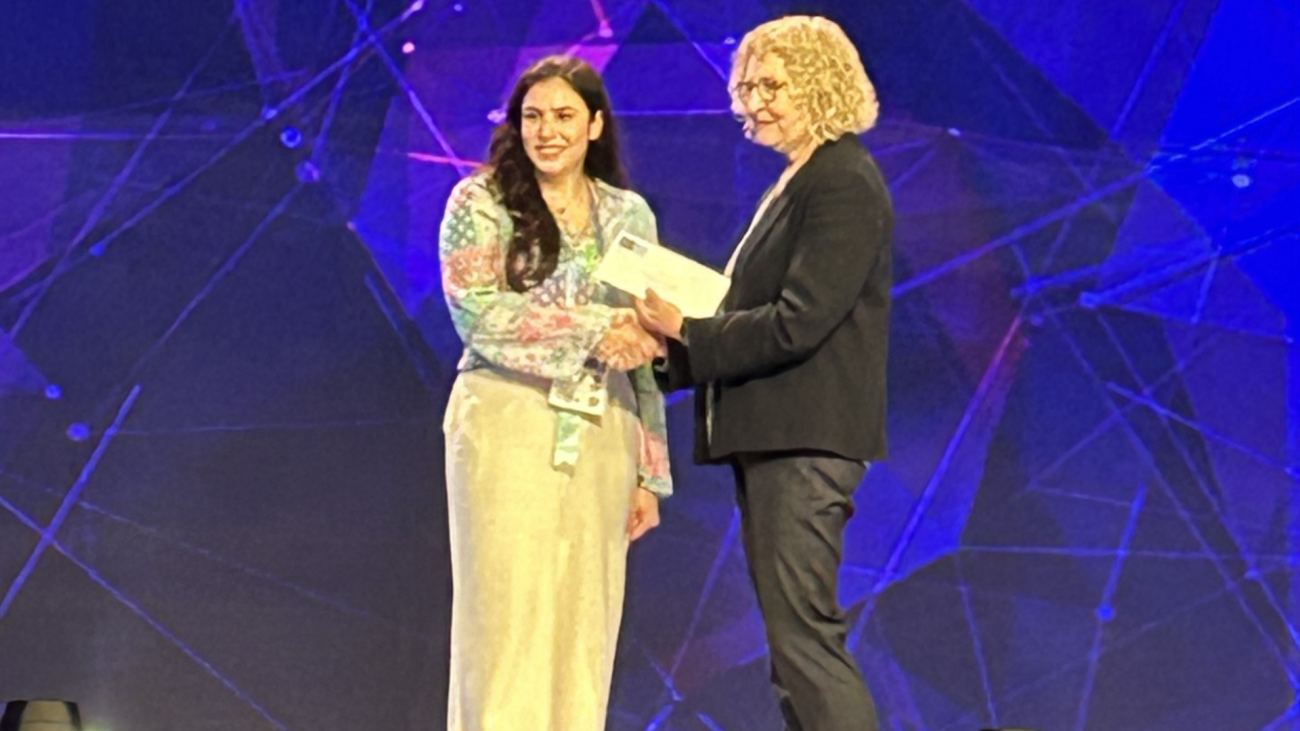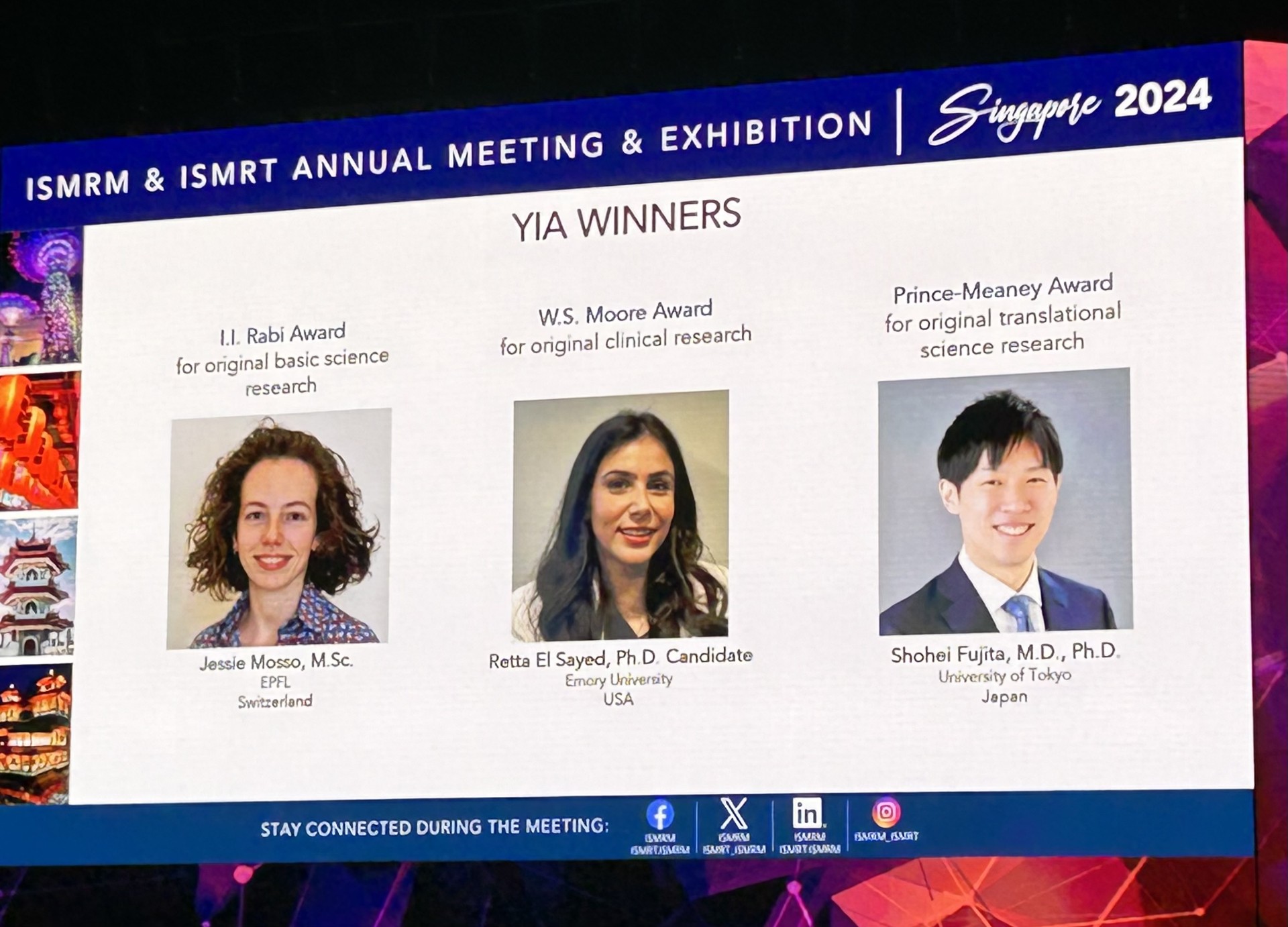Retta El Sayed, a Ph.D graduate from Georgia Tech and Emory University’s Wallace H. Coulter Department of Biomedical Engineering, was awarded the 2024 W.S. Moore Young Investigator’s Award by the International Society for Magnetic Resonance in Medicine (ISMRM). Sayed received this recognition for her research titled, “Assessment of Complex Flow Patterns in Patients with Carotid Webs, Patients with Carotid Atherosclerosis & Health Subjects using 4D Flow MRI.”
“Being awarded the W.S. Moore Young Investigator Award is a tremendous honor that validates the effort and commitment I've dedicated to my research,” El Sayed said. “It's humbling to be recognized among such talented peers in the field and the ISMRM community.”
ISMRM’s W.S. Moore Award, the second major award given at the Young Investigator Award competition, celebrates the best clinical science paper published in the Journal of Magnetic Resonance Imagining (JMRI). El Sayed focused her research on cardiovascular disease as a part of her Ph.D. dissertation.
Her research investigates how magnetic resonance imaging (MRI) can offer precise patient-specific diagnoses. Specifically, El Sayed investigates the complex blood flow patterns in patients with Carotid Webs (CaW), a form of fibromuscular dysplasia (FMD), known to increase the risk of strokes, especially in young African American women.
What sets her research apart is that it's the first study to utilize 4D flow MRI to examine complex hemodynamics linked to CaW, comparing them to patients with atherosclerosis and normal subjects.
“My research is important as it represents one of the early studies investigating hemodynamics in subjects with CaW,” said El Sayed. “This award motivates me to continue pushing boundaries and making meaningful contributions aiming to advance cardiovascular imaging and its clinical applications.”
Her research has the potential to revolutionize the way patients with carotid artery disease are diagnosed and treated, paving the way for more personalized medical interventions, including predicting surgical outcomes.
For El Sayed, the journey is far from over. Next, she’ll be developing a stroke risk assessment tool to guide clinical decision-making, particularly for patients with incidental findings of CaW.
“I am committed to leveraging and enhancing my engineering skill set to explore and address other clinical challenges encountered by the scientific and medical communities in the realm of cardiovascular MRI research,” said El Sayed.
Latest BME News
Jo honored for his impact on science and mentorship
The department rises to the top in biomedical engineering programs for undergraduate education.
Commercialization program in Coulter BME announces project teams who will receive support to get their research to market.
Courses in the Wallace H. Coulter Department of Biomedical Engineering are being reformatted to incorporate AI and machine learning so students are prepared for a data-driven biotech sector.
Influenced by her mother's journey in engineering, Sriya Surapaneni hopes to inspire other young women in the field.
Coulter BME Professor Earns Tenure, Eyes Future of Innovation in Health and Medicine
The grant will fund the development of cutting-edge technology that could detect colorectal cancer through a simple breath test
The surgical support device landed Coulter BME its 4th consecutive win for the College of Engineering competition.









